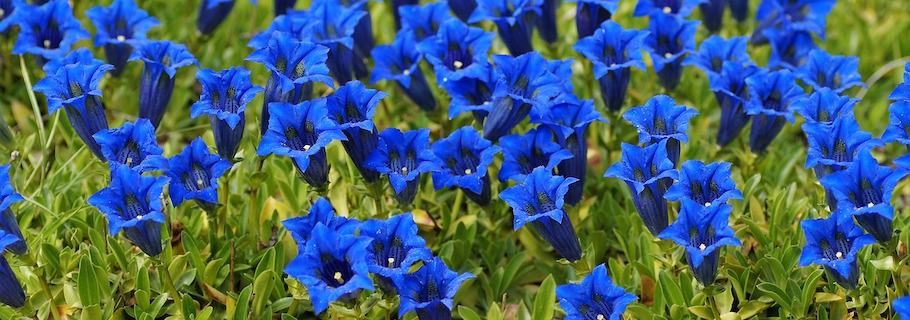Corrie Ten Boom famously compared God’s providence to a tapestry which, as it is being woven, seems to be little more than a mess of threads and knots. But when finished it is turned over to reveal its beauty. You can read this in a poem she popularized titled “Life Is But a Weaving.” But she was not the only one who has made such a comparison. Long before Ten Boom the abolitionist John Greenleaf Whittier wrote “The Pressed Gentian.” Years later the author J.R. Miller picked up on it and wrote a neat reflection that I thought you’d enjoy.
One Christmas a friend sent the poet Whittier a flower pressed between two pieces of glass. On one side, the appearance was without beauty, only an indistinct, blurred mass of something held beneath the pane, but on the other side the full exquisite beauty of the flower appeared delicately outlined under the glass. The poet hung the token on his window, turning the lovely side inward. Those who passed by outside, looking up, marked only a “gray disc of clouded glass,” seeing no beauty, perchance wondering that the poet would cherish anything so void of beauty; but he, sitting within, looked at the token, and saw outlined against the winter sky all the exquisite loveliness of the flower.
They cannot from their outlook see
The perfect grace it hath for me;
For there the flower, whose fringes through
The frosty breath of autumn blew,
Turns from without its face of bloom
To the warm tropic of my room,
As fair as when beside its brook
The hue of bending skies it took.
But deeper meanings come to me,
My half-immortal flower, from thee!
Man judges from a partial view,
None ever yet his brother knew;
The Eternal Eye that sees the whole
May better read the darkened soul,
And find, to outward sense denied,
The flower upon its inmost side.There is a side of perfect beauty in every providence of the Christian life; and there is also a side that is dark, blurred, or even repugnant. To those who look at the providence from within, sitting in the chamber of faith and peace, it appears in all the colors of heaven; but to those who stand outside, in the winter’s cold, and look at it, it appears without one line of loveliness. Only those who behold God as their Father see the beauty in his providences.










